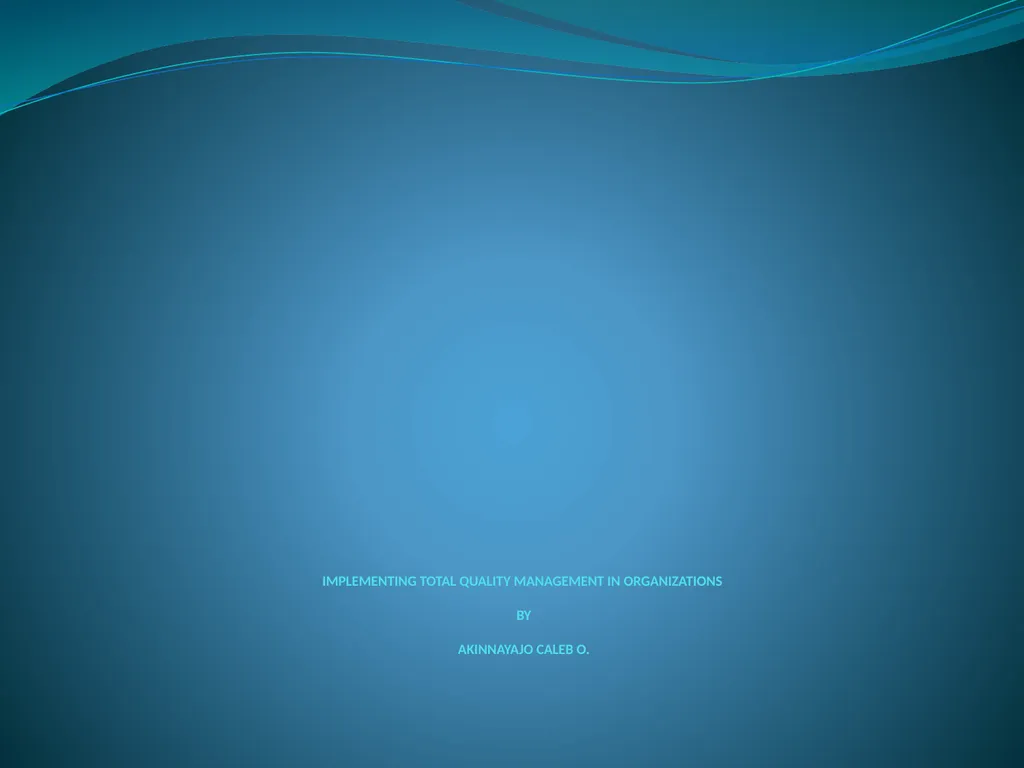
Author : tatyana-admore | Published Date : 2025-06-23
Description: IMPLEMENTING TOTAL QUALITY MANAGEMENT IN ORGANIZATIONS BY AKINNAYAJO CALEB O. Total Quality Management (TQM) is a management style that implies non-stop process of quality improvement of products, processes and personnel work. This is aDownload Presentation The PPT/PDF document "" is the property of its rightful owner. Permission is granted to download and print the materials on this website for personal, non-commercial use only, and to display it on your personal computer provided you do not modify the materials and that you retain all copyright notices contained in the materials. By downloading content from our website, you accept the terms of this agreement.
Here is the link to download the presentation.
"IMPLEMENTING TOTAL QUALITY MANAGEMENT IN"The content belongs to its owner. You may download and print it for personal use, without modification, and keep all copyright notices. By downloading, you agree to these terms.













